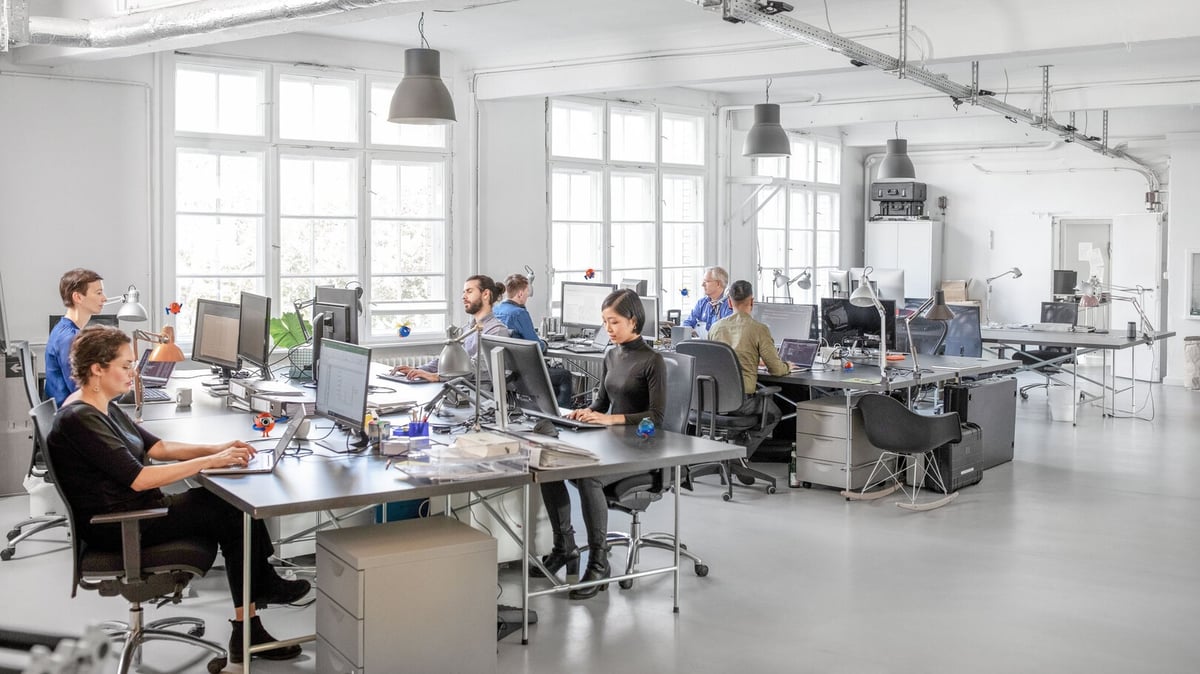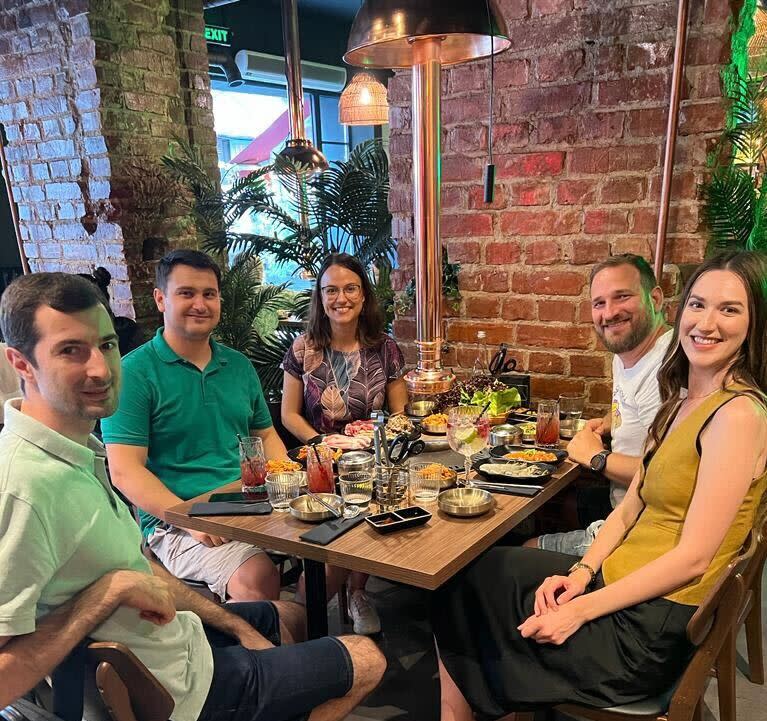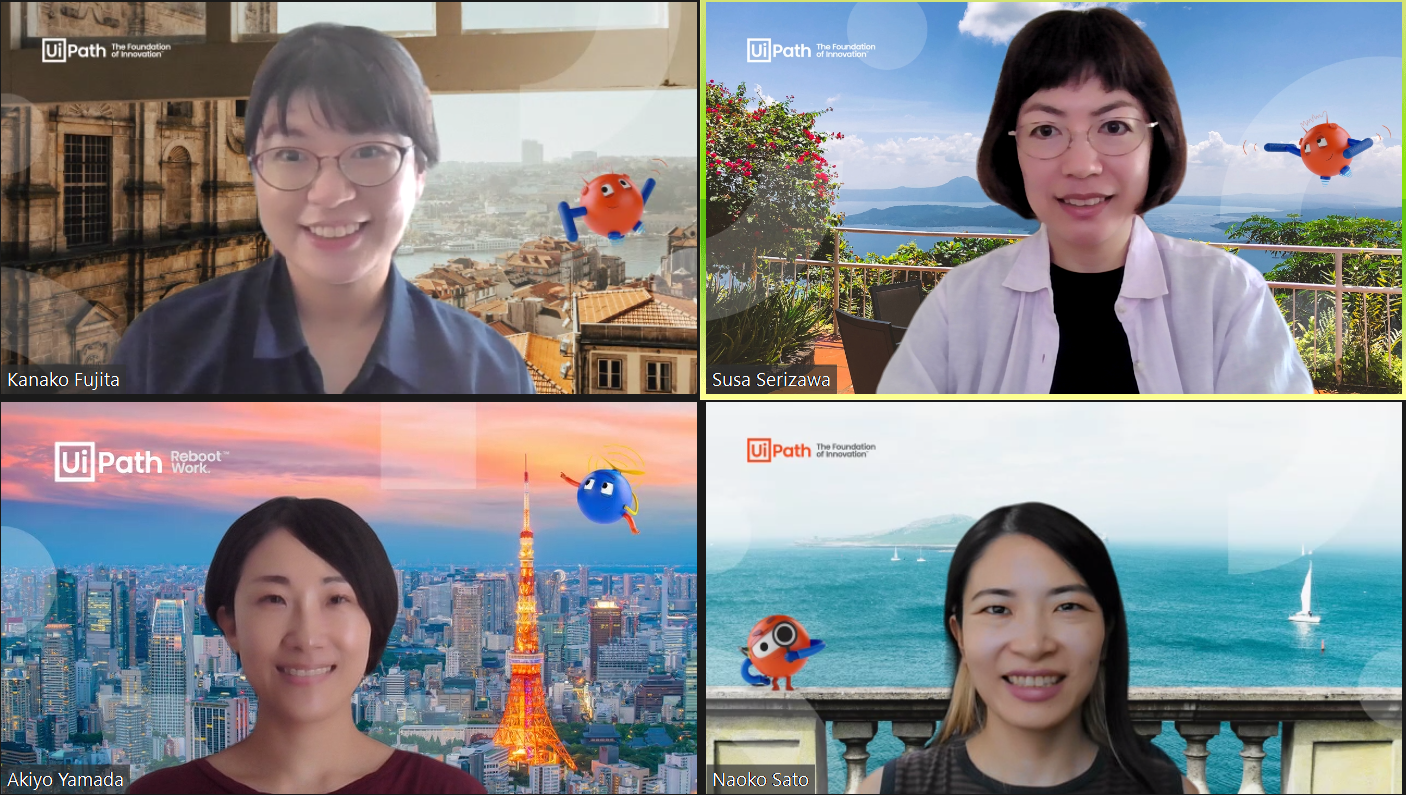Product Localization team on bridging language barriers
Share at:

In today's interconnected society, language is no longer a barrier to accessing technology and information. Companies are actively working to overcome this obstacle through a process called localization. Localization teams play a crucial role in making sure that products are easily accessible and user-friendly for people around the globe. This is a story of how colleagues from two different countries, Japan and Romania, joined forces to create a strong and collaborative team. Let's dive into their experiences, explore the challenges they face, the satisfaction they find in their work, and the significant impact they're making.
Meet the team
Alexandra Pop, who joined UiPath in January 2019, formally initiated the Product Localization program at UiPath. Her primary objectives were to establish and execute a comprehensive strategy to achieve global expansion across various markets, as well as to implement a seamless and continuous localization process, leveraging automation to its full potential. As the team and scope expanded, Alexandra took on the role of leading the Product Localization and Accessibility team, continuing to support internal teams in developing products that are accessible for a broader audience.
Andrei Stoian, after a decade-long journey in quality assurance, began his journey with UiPath as a Localization Program Manager in June 2019. Today, as a Senior Program Manager, he oversees the localization process for all Desktop products and takes care of technical requests and implementations, all with a focus on improving the quality of our deliveries.
Diana Tufan, who specializes in the localization of cloud products and technical documentation, has been part of UiPath since February 2022. Her journey began in marketing localization, transitioning to UiPath as she took on more technical responsibilities. Diana has an educational background in translation and interpreting, coupled with living for 10 years in Spain.
Susa Serizawa, based in Japan, started her UiPath journey in May 2019. She has the pivotal role of leading the translation team in Japan. Having three talented members, they support translating the UiPath product's user interface and documentation into Japanese. Susa started as a translator 25 years ago, progressing to a project manager, and ultimately, her current position as a Manager for Product Programs.
Naoko Sato, Language Specialist in Japan, is contributing to the Product Localization team under Susa's guidance. Naoko's UiPath journey began in September 2018, and her role involves translating user interfaces and user guides. Her path took a turn from learning Russian at university to working as a translator and secretary in a Mechanics company before finding her way to UiPath.

Understanding the Localization team's responsibilities, challenges, and impact
With our team operating in both Japan and Romania, localization is a critical process where we translate our products into eleven languages, considering the unique tone, style, and wording preferences of each country. It also involves adapting our products for use in different languages, addressing challenges like special characters, date formats, currencies, and sorting preferences specific to each target country. In essence, localization and internationalization are like two sides of the same coin, working together to ensure the quality of our products when they reach global markets. In Japan, our team consists of internal translators who specialize in Japanese, while external vendors handle translations for other languages.
"Weekly, our work kicks off on Mondays when we send newly developed strings for translation, making sure that they're ready by week's end. We currently have a continuous localization process, so what keeps us busy is the ongoing coordination with our internal teams to stay up to date with the latest releases, maintaining a strong communication with our translation teams and vendors to ensure they align with our product development and deliver translations on time," shared Diana.
Beyond our day-to-day responsibilities, we constantly seek ways to enhance localization quality and turnaround time of translations.
"This includes investing in researching tools and approaches to integrate Machine Translation and AI into our translation workflows, creating surveys, organizing testing rounds, and gathering feedback from users to improve overall quality. Each year we gather feedback from our internal users, who work directly in our target markets. These employees, whether in sales, engineering, or customer success, work with our global customers and generally use UiPath products in target languages. We also run surveys among our community users to get their thoughts on localization quality, engaging users to address any quality issues. Additionally, we provide documentation for our developers, offering guidelines and advice on optimizing the development experience when working with localization in mind," added Andrei.
When it comes to the most challenging aspect of their work, Naoko shared there are instances when providing a complete, user-friendly, and natural translation isn't straightforward. "Occasionally, customers or internal UiPath employees may raise concerns or propose fixes for translations, but we may encounter constraints or contextual factors that interfere with fulfilling their requests. This can be a challenging aspect, however, on the flip side, I find it both rewarding and enjoyable to craft natural translations."
A glimpse into what they love about their roles and team
Transitioning from a semi-technical background into localization program management with a strong technical component has been an exciting journey for Andrei. Embracing the challenges of the technical aspects of the role, he gained knowledge in various tools and integrations like GitHub, significantly improving his technical skill set. What's been particularly rewarding for him is the generous support he received from other teams, especially the development teams. "Their assistance, guidance, and examples have empowered me to implement solutions on my own in a lot of cases, reducing the interaction between our localization team and the Dev teams to just a fraction of what it once was. This transformation includes significant process automation, streamlining workflows, and saving valuable time that was previously spent on manual tasks."
"It's great for me to see the personal growth and development of each team member as they navigate their journey at UiPath. When it comes to our team in Japan, I've had the privilege of noticing their impressive evolution over the years. They've truly embraced an international mindset and it's been very rewarding to see their growing openness towards new ways of working and being of one mind with our global team," added Alexandra.

For Susa, it's the growth she witnessed. "When I initially joined UiPath Japan, we had three products to localize. Back then, we faced challenges due to the lack of information and policies regarding processing translation requests. However, we've come a long way since then, now handling translations for over 20 products. Our team's dedication and continuous efforts have led to great improvements. They can now translate much more efficiently, keeping a high level of quality. It's a source of great pride to witness their commitment to increasing their translation skills and project execution abilities day by day and week by week," said Susa.
The team's monthly calls often go towards talking about cultural aspects of their countries. "On one hand, we Romanians share our culture, traditions, and what's happening around Romania. On the other hand, our colleagues in Japan offer glimpses into Japanese culture," shared Alexandra. These exchanges help them foster a better understanding of each other, and it improves their collaboration at work. "By feeling closer and having insight into one another's backgrounds, we can better interpret reactions and collaborate smoothly. These calls have led to some fascinating discoveries about the differences and, equally importantly, the similarities between Romanian and Japanese culture. Of course, we also find time to chat about our personal interests, like the TV series we're currently watching, for example," added Diana.

For the Localization team, UiPath provided a context to have constant evolution, with a spirit that thrives on change and growth. From the fast pace of transformation that sets it apart from many other organizations to the maturity of our teams, their dedication, and their willingness to go above and beyond, that's what keeps their team bonded. This environment fosters motivation and a drive to deliver results. They're also inspired by the company's willingness to embrace trial and error, giving them the freedom to explore new ideas without fear of failure.
If you're interested in joining our Product team, check out the available jobs on our career page. And if you're curious about diving deeper into the technical side of products, keep an eye on our blog for upcoming stories.

Global Employer Branding Manager, UiPath



